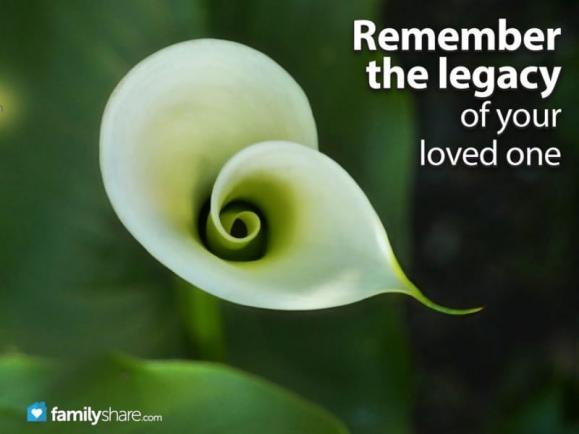
First, allow me to offer condolences as you would not likely have found this article had you not lost a loved one. My thoughts are with you.
As you struggle to find the words to eulogize your loved one, you may wish to consider the following basic outline for your remarks.
Memories
You will want to share your fond memories of the loved one with the group that assembles to mourn the loss. In order to draw your audience in and connect with them, you may want to start with stories experienced with many of the people who will be there. Beginning a story with a phrase like, "you all remember how much she loved her dog,"� before you relate a story about her and the dog will place your audience in the story with you.
As you seek to identify stories to share, look for stories that involve overcoming a struggle. Whether the story is a humorous anecdote about a battle with a string of Christmas lights, or a sobering story about rescuing a friend in need, those stories that involve a challenge will resonate with the audience and illuminate the character of your loved one.
Legacy
Regardless of your faith and the faith of the other mourners, you should talk about the legacy of your loved one. Her mark on the world, and what she leaves behind is an important theme. Everyone will take comfort in knowing that she will be remembered and that there is evidence she lived a good, full life. Keep in mind that children and grandchildren are a part of that legacy and will take pride in thinking of themselves as part of that legacy. Remind them.
Theology of rest
This final part of your eulogy may be difficult if you are not especially religious. Every religious tradition has a different sense of what happens after death, but one key difference between the faithful and the faithless is a view that the end of mortality is not the end of life. The more vivid you paint the picture of your loved one in paradise, the better likelihood mourners will (generally) be comforted. Don't be afraid to share this hopeful message; your audience will be eager to hear it. That said, if you are uncomfortable with the topic don't feel the need to speak on it at length. A simple and genuine expression of faith and hope in heavenly rest will go much further with your audience than a lengthy theological discussion.
If you have no such faith and don't wish to offer what you consider to be false hope, you may, of course, omit this last section. Out of respect for the faithful, however, it would not be advisable to publicly insist that mortality has brought a final end to your loved one's being.
By following this simple outline, you can put together an endearing eulogy for your loved one in relatively short order. Thoughtful and honest remarks will both serve to engage your audience and respect the memory of your loved one better than flowery language and insincere emotion.
Be sure to write down or record your remarks to serve as a piece of family history; what you say about your loved one's legacy should be a part of that legacy.

